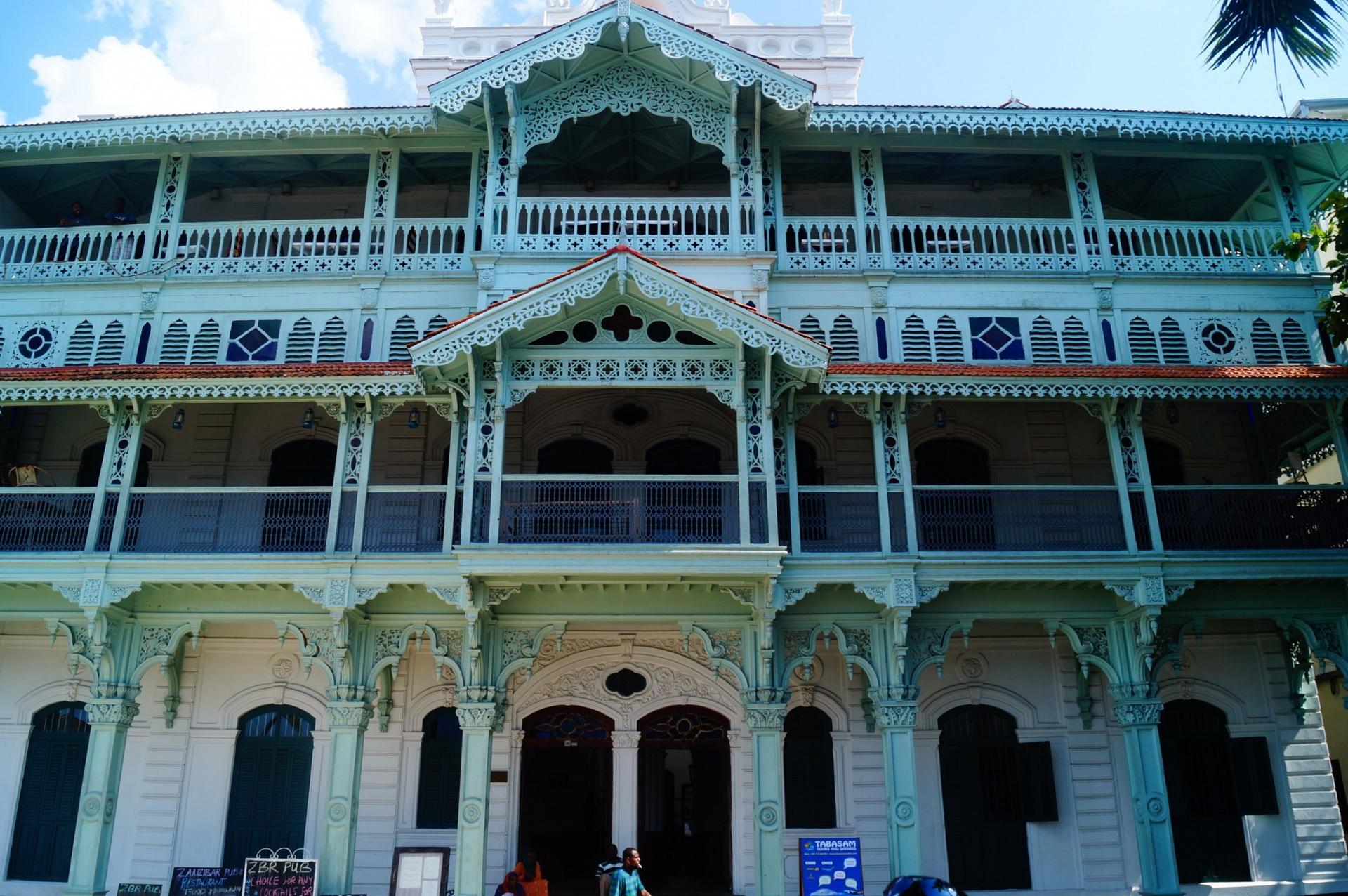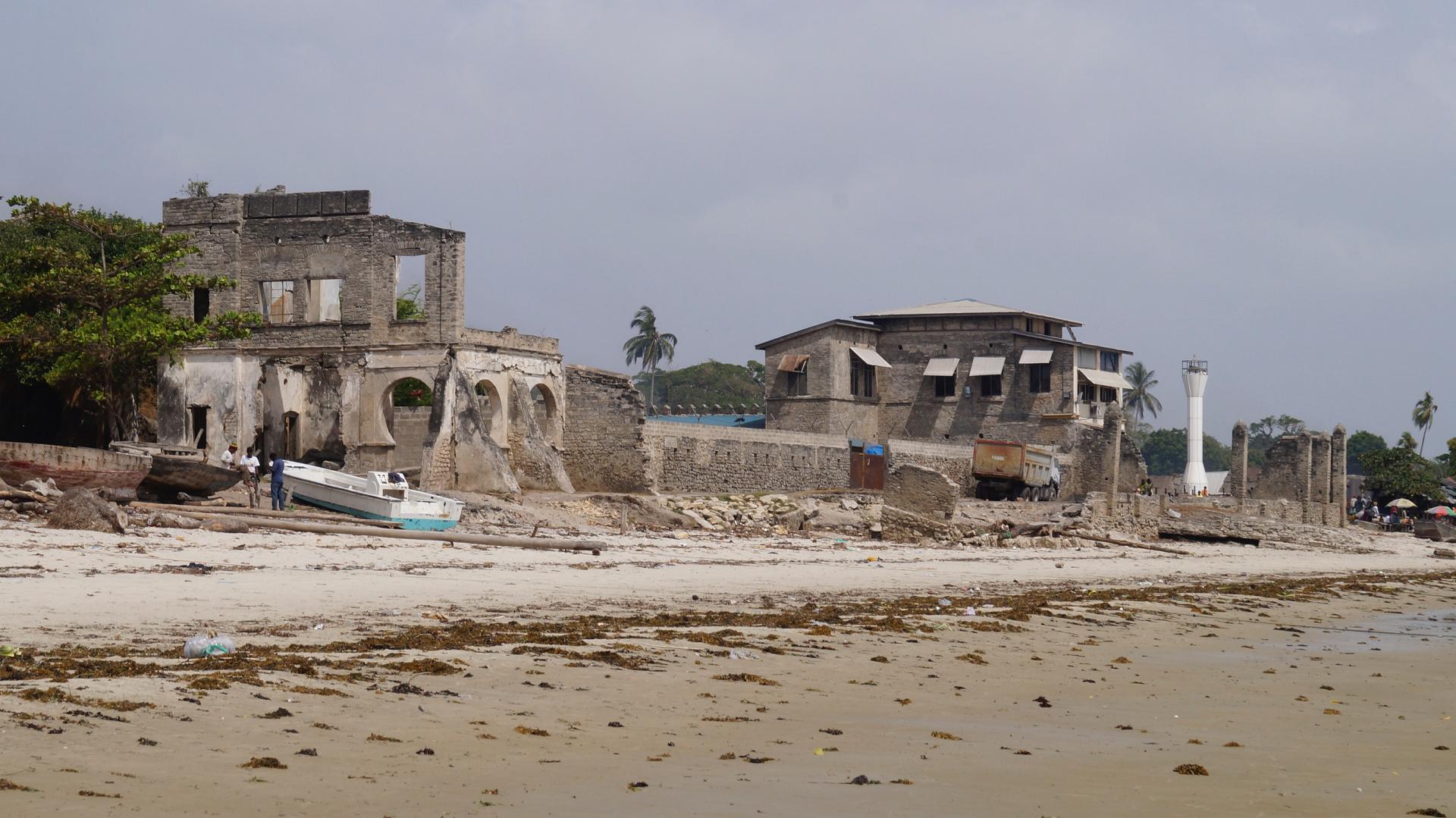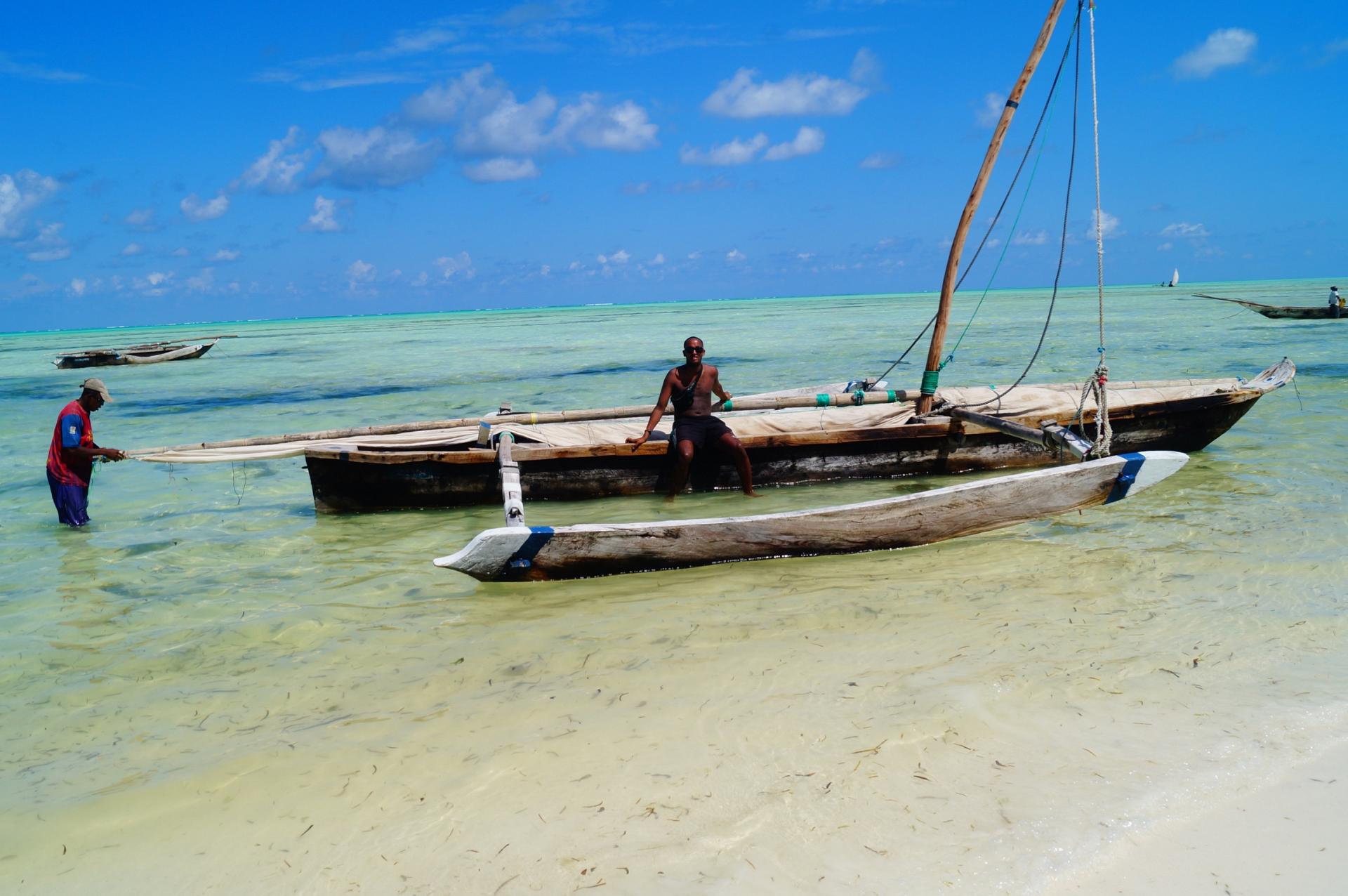Tanzania
Tanzania is a land of spectacular beauty, and one of the largest countries in Africa. It is a union formed in 1964 between the mainland (Tanganyika), and the Zanzibar isles consisting of Unuja (also known as Zanzibar) and Pemba. It lies on the east coast of Africa. It is bordered to the north by Kenya and Uganda. To the west is Zaire, Rwanda, Burundi and Zambia and to the south are Malawi and Mozambique. It covers an area of 945,000 sq. km, the size of Denmark, France, the Netherlands, the Republic of Ireland and the United Kingdom combined and a population of 29 million according to Safari website 2013.
Tanzania comprises coastal lowlands, volcanic highlands and the great rift valley and includes within its territory, Africa's highest peak (Mt. Kilimanjaro).

House at the port of Zansibar

old slave market in Bagamoyo
Tanzania is the only country in the world which has allocated at least 25 percent of its total area to wildlife national parks and protected areas. The total protected area is equivalent to the size of the Federal Republic of Germany and Belgium combined.
Zanzibar (from the persian Zenji-Bar, which means land of black) is located about 35 kilometers of the coast of Tanzania. It is famous for its deep-sea fishing and scuba-diving. 90 percent of the population in Zanzibar are Muslim. Visitors should dress modestly in public places. Zanzibar is warm almost all year round with heavy rains from March to May and lesser rain during October and November. February is the hottest month with a maximum average temperature of 29 degrees celsius.
From the 17th to the 19th century, the Island of Zanzibar was the centre of the East African slave trade under the rule of the Sultan of Oman. The East African slave trade reached its peak in the 19th century. Every year, between 10,000 and 40,000 slaves were sold.
The political federation between Tanganyika and Zanzibar leaves each with considerable political and economic autonomy.
The principal language is Kiswahili. English was introduced as a second language in schools more than a decade ago. Consequently English is widely but not nationally spoken and understood. Tanzania has a reputation of friendly and hospitable locals.



